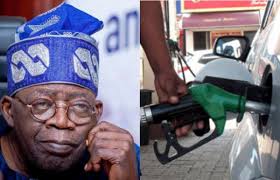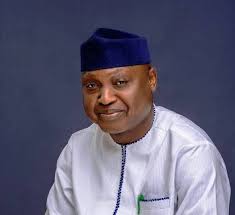At the pioneer Gender and Social Inclusion (GESI) Speaker series recently organized by the John D. and Catherine T. MacArthur Foundation, the conversation was intense, passionate and above all, driven by the ideals of inclusion. The constant declaration of “nothing about us, without us” was yet another pointer to the clarion call for inclusion. It gave the clearest indication that historically marginalized groups, particularly Persons with Disabilities (PWDs) in Nigeria would no longer accept the jaded notion of being passive onlookers when it comes to the issue of the protection and promotion of their human rights. The tone of the conversation showed the readiness of PWDs to assert, and if need be, invoke their fundamental rights as citizens in line with extant laws and regulations.
Interestingly, this first GESI speakers’ series coincides with the end of the five-year moratorium period, after which the robust implementation of the Discrimination Against Persons with Disability (Prohibition) Act 2018, also known as the National Disability Act is expected to get underway. The Act was passed by the National Assembly in 2018, but presidential assent was secured in 2019. Given the penchant of the Nigerian State to enact laws, which are never implemented, or which provisions are never enforced, it was important to begin raising awareness and galvanizing stakeholders to begin making the changes needed to give effect to the law. As expected, the community of PWDs has been quite vocal in making the rest of society come to terms with the fact that there are consequences in the form of penalties and sanctions for individuals, and organizations, which flout the law.
However, the conversation at the inaugural GESI speaker’s series ensured the preoccupation was not limited to discussing how to give effect to the “legal sanctions” approach. The series moderator and Deputy Country Director of MacArthur Foundation, Dr. Amina Salihu found creative ways to navigate the conversation to inspire ideas and innovation, which would change attitudes in favor of a whole of society approach, which promote disability rights. GESI experts and inclusion advocates at the gathering were also able to reflect about solutions and commitments, which would move whole of society to become inclusive and GESI aware. As such, the series provided the depth of expertise and the healthy those of activism on how the State and society could collaborate and explore opportunities, not just to implement the Disability Act in a way that merely ticks the box. The consensus during the conversation focused on raising awareness, intensifying advocacy and taking simple practical steps, which would put Nigeria and its society on the road to becoming an inclusive space in which the needs of all citizens would be factored in the development and governance discourse.
The Director, Africa Office, and Co-Director of MacArthur Foundation’s On Nigeria Program, Dr. Kole Shettima set the tone for the conversation with his opening remarks. His words: “As you are very much aware, the MacArthur Foundation has a global commitment to the just imperative. Our commitment is to justice, and to make sure that we respond to issues of equity, equality and community. When the Foundation was asked about what the just imperative looks like, I know that in the (work of the Foundation) US, usually, we respond from a race and ethnicity perspective. In the Nigerian context, we believe that the gender and social inclusion perspective is probably the most potent approach to take.
He continued: “So we thought that the gender and Social Inclusion perspective is the way to go about this. And so when we tried to operationalize the GESI perspective, we thought that the topic we are discussing today is central to the work that we are trying to do. So, when we say we are taking the GESI approach, we are trying to ask: how do we apply the GESI lens to what we are trying to do.”
Dr. Shettima further stressed how important it is not to take a homogenous view of Nigerians when looking at GESI. He alluded to the fact that Nigerians are segregated by different abilities, socio-economic conditions and gender.
“So whatever approach we take must also be sensitive, rather than having a global approach, which what it does is to reinforce hegemony and oppression in our society. So, we are very happy about this initiative to have a conversation around GESI.”
Next up to push the conversation forward was Tunde Ademefun of the Joint National Association of Persons with Disabilities (JONAPWD). In his highly commended presentation, Ademefun traced the evolution of the Nigerian Disability Act of 2018, which he explained took its roots from pre-existing international conventions and instruments, which all have the objective of enabling the rights of persons with disabilities. He mentioned international instruments such as the International Labor Convention (ILO) Convention of 1923 and the Nigerian Disability Decree of 1993.
“Thereafter, there was a transition towards the Convention on the Rights of People with Disabilities. That in itself was a game changer for persons with disability, and of course, it instituted the rights based approach. And then we moved on to the Sustainable Development Goals (SDGs) of 2016; and now there is the Discrimination Against Persons with Disabilities (Prohibition) Act of 2018. It is our own tool in Nigeria, which makes us equal citizens.”
Ademefun explained that broadly, the Act contains provisions, which speak to issues such as prohibition of discrimination. Other key aspects of the Act address include awareness programs, accessibility of physical structures, road transportation, and opportunities for employment and participation in politics and public life.
“There is also part four, which deals with issues around liberty, rights to education, health and first consideration in queues, accommodation and in emergencies. Section 31-39 provides for the establishment of the National Commission for Persons with Disabilities, while Section 40-51 speaks to the appointment and duties of the Executive Secretary and other staff of the Commission.
He continued: “We are not a homogenous group; we understand that we have different kinds of impairment, so when you are sharing information, you have to be deliberate. For instance, we see a lot of organization design websites, and they are not very accessible to persons with visual impairments.” One of the more significant point made by the JONAPWD speaker is that with the enactment of the Nigeria Disability Act of 2018, there are now enforceable penalties for those who fail to adhere to the provisions of the law.
For Grace Jerry, the series speaker from the Inclusive Friends Association (IFA), the emphasis was more on using data-driven approaches to drive action, enlighten the public and raise awareness. She made reference to the quandary of organizations, which do not know how to take steps required for compliance with disability inclusion or the Act itself. To address that challenge, the IFA designed a “comprehensive directory for accessibility compliance evaluation across private, public and civil society organizations.” Jerry said for accessibility, internal and external spaces in organizations, such as the parking lots, the reception area and places where PWDs access goods or services, must be considered. She also introduced the Accessibility Compliance Dashboard of the IFA, which organizations could leverage to rate themselves. With such data, organizations would be better informed to take action towards becoming inclusive.
Subsequently, Mr. James Lalu, the Chairman of the National Commission for Persons with Disabilities (NCPWD) got the floor. He spoke on how the Nigerian State itself has been approaching the task of engaging persons with disabilities in the context of the Disability Act, 2018. He expressed the total commitment of the NCPWD to the total implementation of the Act. Lalu was of the view that there are different layers when it comes to the implementation of the Act. These layers he noted include access to healthcare facilities, employment and empowerment. On the five-year moratorium period within which every building is supposed to be made accessible to PWDs, he reiterated that the period has ended. Accordingly, he reported that the Commission has swung into action to ensure implementation follows immediately. Another milestone mentioned is the work the Commission has done with development partners to produce the regulations, which would help standardize accessibility in Nigeria.
In the lively interactive session, which followed, stakeholders sought to know more about innovations and practical steps to support the cause of smooth and seamless implementation of the Disability Act. The inaugural GESI series was also not just another talk shop. Participants were able to make their own commitments and share them with others. As the speaker’s series drew to a close with remarks from Erin Sines, MacArthur Foundation’s On Nigeria Program Co-Director, it was apparent everyone wanted more of the GESI conversation. Participants looked all ready and charged to get more information and take action to implement the Nigeria Disability Act in a smooth and seamless way.




















